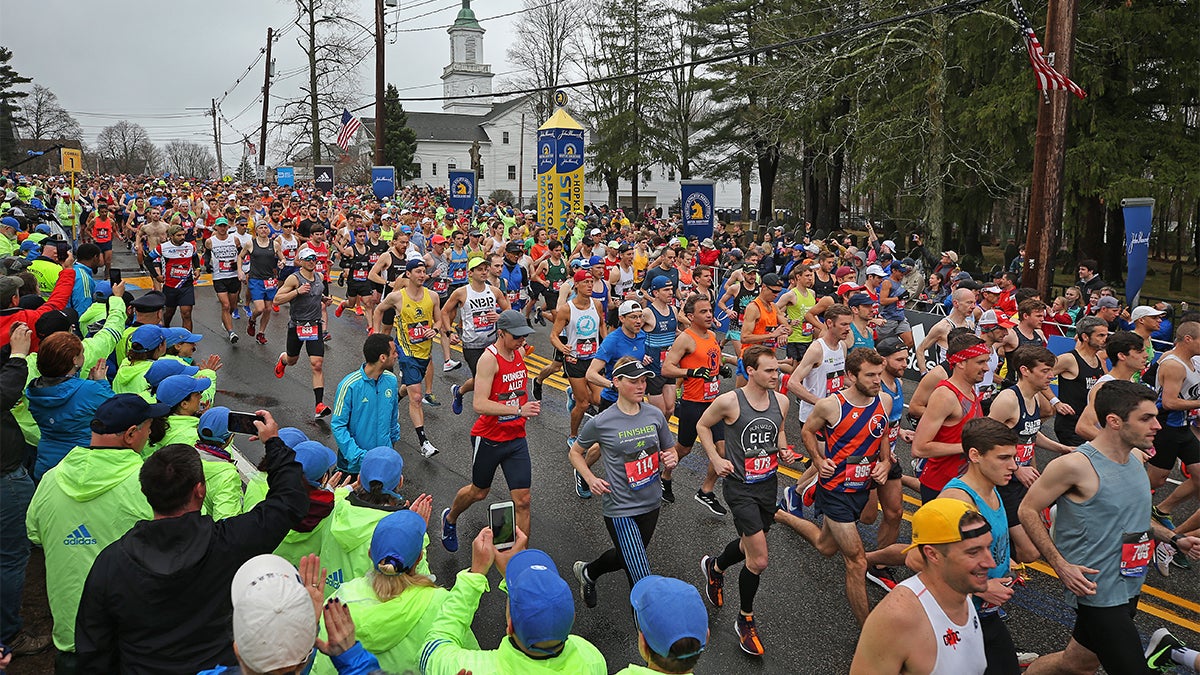Could runners one day eat bacteria to increase endurance?

Athletes often look for any competitive advantage they can find, from specific workouts to diets. With that being the case, runners may soon add consuming specific bacteria to that list.
In a new Nature Medicine research paper, scientists reported that when they injected a specific strain of bacteria into a mouse’s colon, the mouse’s endurance performance on a treadmill improved by 13%. The bacteria, Veillonella, was more common in the gut microbiome of athletes, especially after exercise.

While scientists already knew exercise changes the contents of the human microbiome, this is the first study that shows a potential health benefit from this change. Jonathan Scheiman, who led the study as a postdoctoral researcher at Harvard Medical School before becoming CEO of FitBiomics, said the goal is to create the same improvements in everyday people.
“If we could identify microbes that do contribute to the health and performance of super healthy people, then maybe we could develop a probiotic to help everyday people perform better,” Scheiman said.
According to Scheiman, he could only conduct this study by sampling a large number of athletes’ gut microbiomes. To accomplish this, he spent two weeks asking Boston Marathon runners for stool samples. Once he gathered them, he asked his colleague Aleksandar Kostic to look at the runner’s samples from before and after running a marathon, and also compare it to non-athletes’ stool samples.
Once Kostic sequenced the DNA inside the samples, he found the differences between the number of bacteria and detected a subtle increase in Veillonella bacteria. Runners had more than non-runners and had even more after running a marathon. Scheiman said he had never heard of the bacteria before, so he Googled it.
That’s when he learned about its unique food source — lactate, a chemical byproduct of exercise linked to fatigue. This was Scheiman’s first clue he might have been onto something.
“Isn’t it interesting that after running a race you have an increase in a kind of bacteria that eats a metabolic byproduct of running a race? ... That was a big lightbulb moment,” he said to NPR.
Then Scheiman injected mice with Veillonella and had them compete against mice injected with a non-lactate eating bacteria in an endurance test. While the latter group lasted around 16 minutes, the former lasted 18. In the paper, Scheiman noted the increase in mice will not necessarily correlate with an increase in humans.
Still, the way Veillonella consumes lactate makes sense with the experiment’s results. Instead of just removing lactate, the bacteria turns it into propionate, a chain of fatty acids that affect heart rate and oxygen absorption in mice.
While the relationship between the host and bacteria is unclear, the research shows there’s some correlation. In the meantime, Scheiman said he hopes to test Veillonella in humans at his company, FitBiomics.
Jason Krell is a master's student in sports journalism at Arizona State University
Editor’s note: For the coming 2019-2020 academic year, the Global Sport Institute’s research theme will be “Sport and the body.” The Institute will conduct and fund research and host events that will explore a myriad of topics related to the body.
Related Articles
What poop says about your health
ASU doctoral student explores what your poop says about your health

